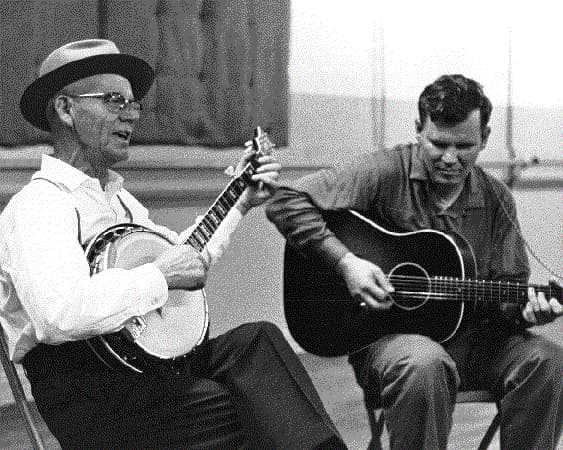
A Haunting Ballad of Longing and Mystery
Few traditional folk songs carry the mystique and timeless resonance of “Cuckoo Bird”, as performed by Clarence Ashley. This haunting ballad, recorded in 1929 during the height of the Appalachian folk revival, is a masterpiece that bridges the old-world traditions of English balladry with the rugged, untamed spirit of American mountain music. Ashley’s rendition, with his plaintive vocals and the ethereal strains of the banjo, stands as one of the definitive interpretations of this enigmatic song.
The Legacy of “Cuckoo Bird”
Rooted in centuries-old British folk traditions, “Cuckoo Bird” tells a story that is both elusive and universal. The song’s lyrics, seemingly fragmented and surreal, evoke themes of unrequited love, longing, and the unpredictable nature of life. The cuckoo, often seen as a symbol of infidelity or fleeting beauty, becomes a metaphor for the speaker’s yearning and discontent. Lines such as “Oh, the cuckoo, she’s a pretty bird, she warbles as she flies” linger in the mind, conjuring images of freedom contrasted with the speaker’s constrained emotions.
When Clarence Ashley recorded the song, it was more than just a musical expression; it was a preservation of a cultural artifact. Ashley, a native of North Carolina, had grown up steeped in Appalachian traditions, and his music reflected the rugged landscapes and the deep emotional currents of his heritage. The haunting clawhammer banjo style he employed in “Cuckoo Bird” imbued the song with a hypnotic quality, emphasizing its mournful beauty and timeless allure.
Chart Performance and Cultural Impact
Although “Cuckoo Bird” did not chart in its time—folk music rarely did in the commercial landscape of the early 20th century—it has become a cornerstone of American folk music. The song’s enduring appeal is evident in the countless artists who have revisited it, from Doc Watson to contemporary folk revivalists. Its influence on the folk and blues movements of the 1950s and 1960s is undeniable, as it inspired a generation of musicians to delve deeper into the roots of American music.
A Window into Appalachian Soul
Listening to Clarence Ashley’s “Cuckoo Bird” is like stepping back in time. The raw recording captures not just a song, but a way of life—a world where music was a form of storytelling, a vehicle for expressing the inexpressible. The song’s cryptic verses invite listeners to find their own meaning, reflecting on the fleeting nature of happiness and the enduring ache of longing.
For those who grew up with the strains of folk music or those who discovered its rich tapestry later in life, “Cuckoo Bird” is more than a song—it is a reminder of the power of music to connect us to the past and to one another. Clarence Ashley’s voice, weathered and authentic, resonates across generations, ensuring that the cuckoo’s haunting cry will never fade from memory.